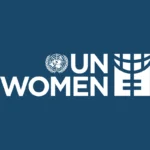This past weekend, the leaders of the G7 countries committed to a faster and more evenly distributed economic recovery, to investments in a more resilient and sustainable world, to stronger global agreements on commerce and finance, and the creation of more opportunities for democracy and prosperity – especially for nations trapped in poverty or conflict.
Words like vaccines, climate, trade, taxes, debt, and development featured prominently.
Those are the right goals at the right time. But achieving them cannot happen without bold investments in women and girls. All governments – not just G7 countries but also nations across Africa and the world – should add one more word to their vocabulary: gender.
As U.S. Vice President Kamala Harris so eloquently put it: “The status of women is the status of democracy.” Her words are both true and urgent. So why aren’t we investing more creatively – and sustainably – to improve the lives of women?
A resilient recovery will not happen without addressing head on the disproportionate impact that the pandemic has had on women.
Over the past year, women have been at the frontlines of coronavirus exposure—as nurses, informal care givers, hospitality workers, and in other high-risk jobs.
We have seen rises in gender-based violence as women are trapped at home with their abusers.
And unintended pregnancy has skyrocketed as lockdowns have disrupted access to reproductive health services.
We are only just beginning to tally the economic impact.
What we do know, from UN Women analysis, is that female unemployment rates rose faster and stayed higher.
Rates of ten percent or more suddenly became common. But women did not quit the labor force any more than men did.
Both kept looking for jobs in roughly the same proportion. It is too early to tell whether this will hold, and more information by country and by industry is needed to paint the full picture.
But it’s a safe bet that the rise in remote working and availability of on-line self-service will do away with jobs in sectors where physical presence is no longer needed and where, today, female representation is large—like administration and retail.
Responding to this new reality calls for new policy instruments. One of them is both powerful and immediately available: gender bonds.
Governments and the financial industry could build on the success of green bonds and launch the first generation of sovereign gender bonds.
Just as green bonds have been designated to support specific climate or environment-oriented projects, gender bonds could be leveraged to support projects advancing gender equality.
This would serve three immediate purposes. First, it would signal political commitment to gender equality. Second, it would put money—both public and private—behind that commitment. And third, it would help countries deal with the massive debt build-ups that followed the unexpected expenses of the pandemic.
After all, the investment houses that have signed the United Nations Principles of Responsible Investment — and that would find “pink” or gender bonds appealing — manage some $100 trillion in financial assets. For any minister of finance, they could provide a massive opportunity to expand and diversify funding sources.
Our call for sovereign gender bonds is less radical than it sounds. Private companies and state-owned enterprises have been issuing them for years, so the operational mechanics are known and tested. Investors have welcomed the idea and priced it accordingly.
About a decade ago, the World Bank pioneered green bonds and opened the door to a new generation of fixed-income instruments meant to support a cause.
Annual global issuances of these thematic bonds topped $300 billion before the pandemic—and are bound to keep growing after it.
The recent and massive issuance of green bonds by the Italian government proved the point—it was oversubscribed ten times over. It is high time to include gender equality among those themes.
Now, which will be the first nation to issue a gender bond?
In most countries, the pipeline and the portfolio of worthy gender equality-focused projects are ready to go, as development banks and private foundations can attest.
It is a question of time before a smart government connects the dots and starts a new market.
Anita Bhatia is Deputy Executive Director of UN Women and Assistant-Secretary-General for Resource Management, UN System, Coordination, Partnerships and Sustainability.
This oped was originally published in The Independent

 Join Daily Trust WhatsApp Community For Quick Access To News and Happenings Around You.
Join Daily Trust WhatsApp Community For Quick Access To News and Happenings Around You.


